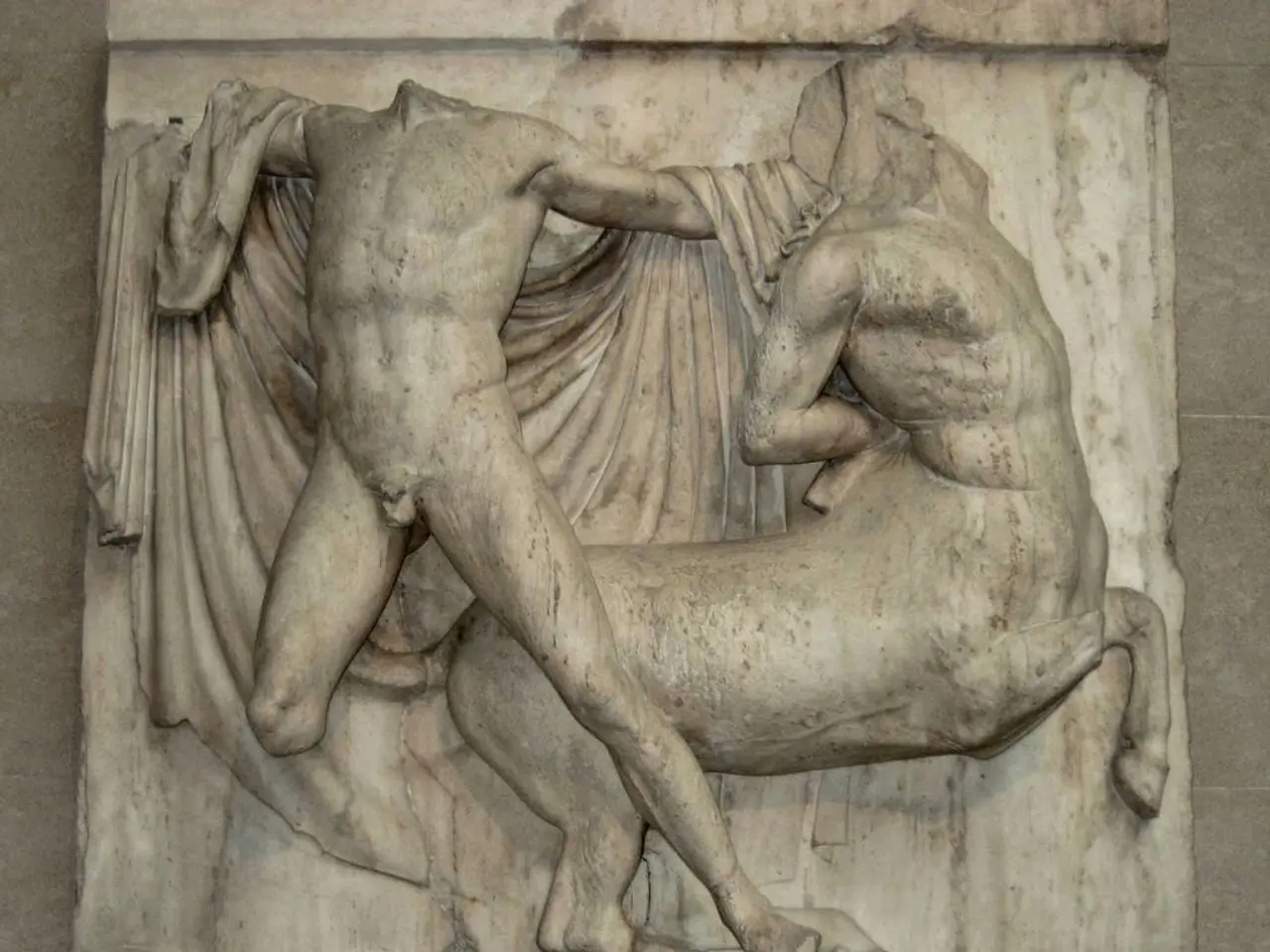Celebrating Akilov Day: Customs and Symbols Explored
The Day of Aqila, also known as Akila Solomennyi or Aquila Straw, is a unique festival rooted in Russian Orthodox tradition and commemorating Saint Aquila, an apostle from the 1st century. This celebration takes place annually on July 27, and it holds deep connections to rural folk customs and agricultural cycles.
Origins
The festival honours Saint Aquila in the Orthodox Church. However, folk traditions gave it the name "Aquila Straw" because peasants hung bundles of straw around fields to alleviate back pain during rye harvest, linking the festival to farming.
Traditions
Straw was believed to have healing and protective powers. It was used for bedding women in labor, insulating homes, and feeding animals. This was a time when harvesting rye was active, and people prepared dishes and reserves for winter.
Villagers posted a watchman in fields, known as "Watches," to monitor a sudden weather change at the end of July—thunderstorms, winds, and lightning that could damage crops or start fires. Rituals were performed to protect against evil spirits presumed to arrive with whirlwinds. These spirits were thought to shape-shift into lost cattle or birds trying to enter homes, so specific rites aimed at repelling them were common.
After the rains, mushroom picking became widespread, celebrated by cooking various mushroom dishes for the family.
Omens & Connection to Weather and Field Spirit
The festival is closely tied to the shift in weather seen in late July, marked by storms threatening crops. The sighting of thunderclouds, strong winds, or lightning were regarded as danger signs warranting vigilance to protect the harvest.
Straw had a symbolic role protecting the fields and people not only physically but spiritually, embodying a connection to the Field Spirit who guarded crops. The presence of evil spirits associated with natural phenomena implied that rituals were essential to safeguard people and their livelihoods during this transitional seasonal period.
Connection to Crops
The festival coincided with the rye harvest and preparation for harsher weather. Peasants relied on the protective power of straw both practically and spiritually to ensure a successful harvest. Mushroom abundance after rains during the festival was another crucial resource for rural families, signalling the fertility of the land and a bountiful natural world.
In summary, the Day of Aqila intertwines the honoring of a Christian saint with pre-Christian agrarian beliefs. It centres on straw as a symbol and tool of healing and protection, careful weather watchfulness during a critical time for harvest, and communal rituals shielding crops and homes from harmful spirits linked to seasonal weather changes.
Some traditional beliefs associated with the Day of Aqila include:
- A fiery sunrise on the Day of Aqila is a sign of rain.
- If it does not rain on the Day of Aqila, the autumn will be dry.
- Children gather mushrooms in the forest during the Day of Aqila.
- On the Day of Aqila, people perform a ritual to appease the Field Spirit, leaving a small sheaf of grains and a pot of porridge in the last row of cut crops.
- According to folk belief, evil spirits can descend upon the earth on the Day of Aqila, taking the form of domestic animals or children.
- If crows are rocking on the water on the Day of Aqila, it's a sign of fine weather.
- Many clouds in the sky during the Day of Aqila are a sign of rain.
- Watchmen on the Day of Aqila observe to prevent wind from scattering hay and lightning from causing damage.
- People guard the fields during the Day of Aqila due to unpredictable weather conditions.
The Day of Aqila commemorates the memory of the apostle from the 70, Aqila of Heraclea, bishop. This year, the Day of Aqila will be celebrated on July 27, 2025 (Old Style: July 14).
- Despite its origins rooted in the Orthodox Church, the Day of Aqila also incorporates traditional home-and-garden practices as peasants used straw not only for insulating homes but also for alleviating back pain during rye harvest.
- The lifestyle during the Day of Aqila was shaped by the agricultural cycle, with villagers performing rituals to protect their crops, harvest rye, and gather mushrooms, which they used to prepare family meals and store reserves for winter.




